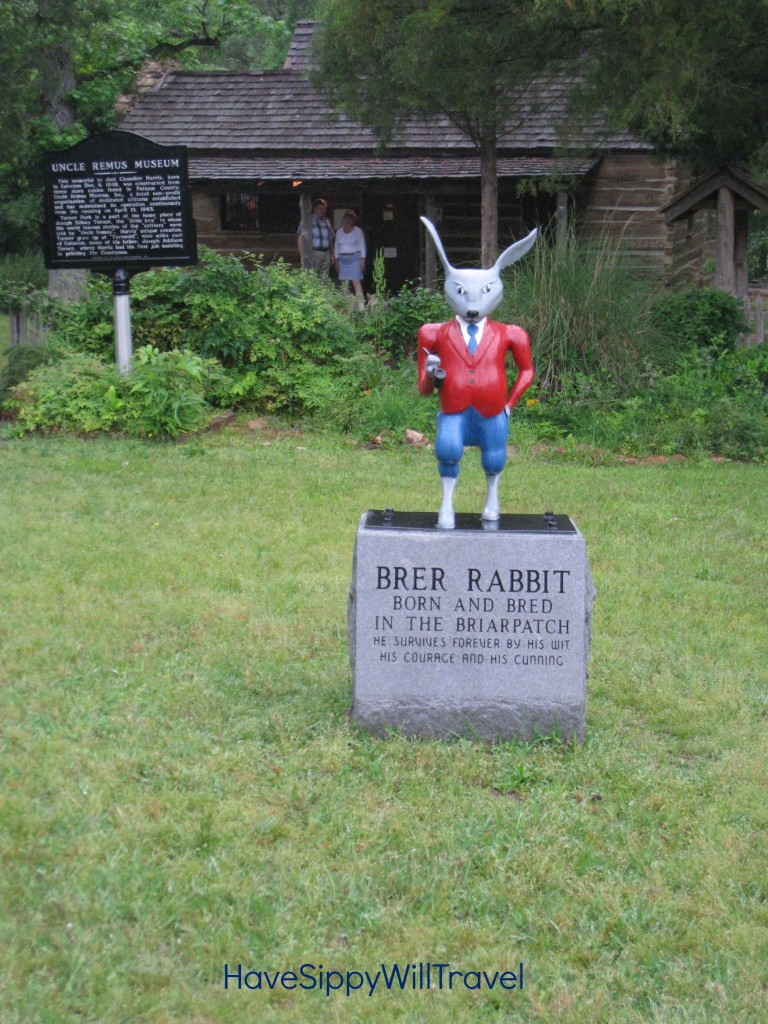“There were two worlds. Inside the cabin Uncle Remus and the little boy lived in an imaginary world peopled by their friends, the animals of the old man’s stories. Outside of the cabin was the large cotton plantation, the world of reality.”
The Uncle Remus Museum takes you back to the South’s pre-Civil War era of the early 1860’s. The warn cabin floors, the smell of heart pine wood and aged books, and the rustic southern antiques hanging delicately on the walls immerses you into the times of Turnwold Plantation. The long hot days in the cotton fields were followed by cool cozy nights by the blazing fire in the cabins. At the end of a long day on the plantation, the southern blacks gathered closely on the dusty cabin floors enriching the air with African spirituals and heritage fables. In the middle of the cabin, you would find a red-haired, freckle-faced young man sitting and listening intently by the glow of the fire as he gets lost in an imaginary world of a mischievous rabbit and furry critters.
The young man, Joel Chandler Harris, spent his days writing for the Turnwold Plantation’s news publication, The Countryman, as a “printer’s devil” or apprentice. At night, he spent time in the cabins with the plantation slaves listening to their stories and fables of their heritage. Joseph A. Turner, the plantation owner, mentored Harris with his studies and writing and cared for him like the “daddy he never had.” Turner set Harris on a successful career path, and after his time at The Countryman he went on to write for the Macon Telegraph, the Monroe Advertiser, the Savannah Morning News and the Atlanta Constitution. The first article that Harris got published in The Countryman was a recipe for making black ink. It wasn’t until Harris’s career at the Atlanta Constitution many years later that he began to publish stories about Br’er Rabbit, Br’er Fox and the rest of the critters.
Joel Chandler Harris established Eatonton-Putnam’s historical significance after he went on to publish the fables that he gathered from his old, lovable slave friends. Harris used the name “Uncle Remus” to identify the personification of a large number of slaves from whom he heard the folk stories. Eatonton-Putnam preserves its heritage of the old plantation stories with the Uncle Remus Museum. Inside the museum, you will find original copies of Joel Chandler Harris’s news publications, Br’er Rabbit stories, paintings of Turnwold plantation and shadow boxes filled with the hand-carved characters of the Br’er Rabbit fables. This year, The Uncle Remus Museum of Eatonton, GA Inc., is celebrating the 50th anniversary of the museum’s operation in order to honor its growth, international recognition and historical importance of Eatonton’s heritage.
Beginning on April 7, the Uncle Remus Museum will be offering “Return to Turnwold” tours every Sunday in April. The tours will be led by Jim Marshall, President of the Eatonton-Putnam County Historical [Read more…]
















